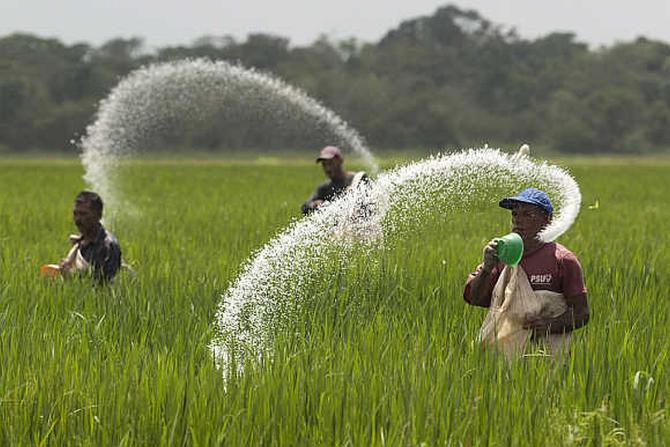As the kharif season is setting in, India is scrambling to source fertilisers from the international market.

It is set to sign long-term contracts — especially with Morocco and Latin American countries — to ensure steady flow of supplies.
“We have to source fertilisers wherever it is available because crops have to be secured.
"We are ready to enter into long-term contracts with Morocco as well as Latin American countries.
"The problem is that prices are very high,” a senior government official said.
The kharif cropping season starts with the onset of the southwest monsoon in the Indian subcontinent.
The monsoon has set in over Kerala on Sunday, three days ahead of its normal onset date of June 1, the India Meteorological Department (IMD) said.
Last month, the IMD said that monsoon in 2022 could be ‘normal’ at 99 per cent of the long period average (LPA).
India is heavily dependent on foreign countries to meet its requirement of fertilisers, importing almost a quarter of its total requirement and 100 per cent for potash and phosphate.
While Covid significantly raised fertiliser prices in the international market, the Russia-Ukraine war has aggravated the situation.
This is due to high gas rates and shortage of key raw materials as well as finished products.
Speaking at an event in Gujarat on Saturday, Prime Minister Narendra Modi said while a 50 kg bag of urea is imported at Rs 3,500, the Centre sells it for Rs 300 to farmers, with the government bearing the difference.
“Despite the spurt in prices of DAP (Diammonium phosphate) in the international market, our government has continuously attempted to minimise the burden on farmers.
"Now, our government is bearing Rs 2,500 on a 50 kg bag of DAP.
"That is, within 12 months, the central government has taken 5 times the load of every bag of DAP.
"Last year, the central government gave a subsidy of Rs 1.6 trillion in fertilisers so that the farmers of India do not face any problem.
"This assistance to the farmers is going to be more than Rs 2 trillion this year,” Modi added.
Modi said the government has decided that it would continue to bear all these troubles but would not let the farmers get affected by it.
“And that’s why, in spite of every difficulty, we did not allow any major fertiliser crisis to hit the country,” he added.
According to the Food and Agriculture Organisation (FAO), India is the second-largest user of inorganic fertilisers after China, followed by the US and Brazil.











